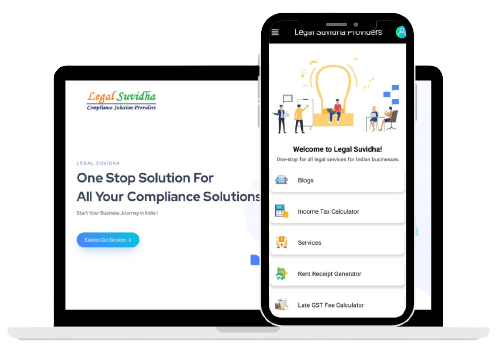ISO 27001: Information Security Management
ISO 27001: Information Security Management – A Simple Guide In today’s digital world, keeping sensitive information safe is more important...
E-waste recycling authorization is a permit issued by the government to a company or entity engaged in the business of electronic waste (e-waste) management and recycling. The authorization is a legal requirement under the E-Waste (Management) Rules, 2016, which were introduced in India to regulate the handling, generation, and disposal of e-waste.

Happy Clients
Years Experience

Happy Clients
Years Experience
The global E-Waste Monitor Report estimates that 53.6 million metric tonnes of e-waste were generated globally in 2019, while in India, around 10.14 lakh tonnes of e-waste were generated in 2019-20 according to The Central Pollution Control Board report. However, the disposal of e-waste without proper management or treatment can have severe consequences for the environment and human health. Toxic chemicals such as lithium, mercury, nickel, arsenic, selenium, and lead can leach into the soil or water bodies, causing damage to the ecosystem.
The COVID-19 pandemic has contributed to an increase in e-waste accumulation due to the rise in demand for new technology and electronic gadgets. To address this growing concern, governments and authorities are formulating new policies and promoting better ways to manage e-waste, including e-waste recycling authorization. Proper management and recycling of e-waste can help reduce the impact of toxic chemicals on the environment and protect human health. Therefore, it is essential to follow e-waste management regulations and file annual reports to ensure compliance with legal obligations and promote responsible e-waste management practices.
| Environmental Protection | The primary advantage of obtaining e-waste recycling authorization is that it helps protect the environment. E-waste contains toxic materials such as lead, mercury, and cadmium, which can contaminate soil, water, and air, causing serious health problems |
| Resource Conservation | Another advantage of e-waste recycling is that it helps conserve valuable resources. Many electronic products contain precious metals such as gold, silver, and copper, which can be recovered and reused through recycling |
| Economic Benefits | E-waste recycling can also provide economic benefits by creating job opportunities and generating revenue. Recycling facilities require skilled workers to dismantle and process electronic waste, providing employment opportunities |
| Legal Compliance | Obtaining e-waste recycling authorization ensures legal compliance with the e-waste management regulations. Failure to comply with e-waste management regulations can result in penalties and legal action, damaging the reputation of the company |
E-waste recycling refers to the process of recovering valuable materials from electronic waste and reducing the amount of hazardous waste that ends up in landfills. The methods and process of e-waste recycling may vary depending on the type of electronic waste being processed and the recycling facility’s capabilities. However, here are some general methods and processes involved in e-waste recycling:
Step 1: Collection: The first step in e-waste recycling is the collection of electronic waste. This can be done through various methods such as drop-off locations, curbside pick-up, or business-to-business collections.
Step 2: Sorting: Once collected, the electronic waste is sorted into different categories based on their material composition, such as plastic, metal, glass, and circuit boards.
Step 3: Dismantling: The next step involves dismantling the electronic waste into smaller parts, such as batteries, wires, and chips. This is done manually or through automated processes.
Step 4: Material Recovery: After dismantling, the various parts are processed to recover valuable materials such as precious metals, copper, and aluminum, through processes such as smelting, refining, and shredding.
Step 5: Disposal of Hazardous Waste: The hazardous components of e-waste such as lead, mercury, and cadmium are disposed of in an environmentally responsible manner through processes such as incineration, neutralization, or secure landfilling.
Step 6: Reuse: Components that are still functional, such as computer screens or hard drives, may be reused in refurbished products.
Step 7: Final Disposal: The final step involves disposing of the remaining waste materials in an environmentally responsible manner.
E-waste recycling not only conserves valuable resources but also reduces the amount of hazardous waste that ends up in landfills, protecting the environment and human health. It is crucial to promote responsible e-waste management practices and encourage the recycling and proper disposal of electronic waste
1. Aadhaar Card of the recycler
2. PAN Card of the recycler
3. GST Certificate
4. Rent agreement/Lease agreement/Proof of ownership of the site
5. Electricity Bill
6. Due diligence materials (additional documents or information requested by the investor)
Then if the recycling plant is Pvt Ltd/Public Ltd Company-
1. Rent agreement/Lease agreement/Proof of ownership of the site
2. Electricity Bill
3. Aadhaar Card of the recycler
4. PAN Card of the recycler
5. GST Certificate
6. CIN (Certificate of Incorporation)
7. Company PAN Card
8. MOA (Memorandum of Association)
9. Board Declaration for Authorized Signatory
E-Waste Extended Producer Responsibility (EPR) EPR, or Extended Producer Responsibility, refers to a producer’s obligation to channel e-waste in a way that promotes ecologically responsible waste management.
Extended Producer’s Responsibility is referred to as EPR. For the management of e-waste, Indian manufacturers and importers of products must have an EPR Certificate. The Central Pollution Control Board (CPCB), a division of the MoEFCC, Government of India, grants EPR authorization.
Each Producer must pay the appropriate EPR charge and join a Producer Responsibility Organization (PRO) or certified EPR Scheme by no later than 5 November 2021. As an alternative, a Producer may establish or develop its own EPR scheme.
Through enhancing recycling and reducing reliance on new raw materials, EPR is a producer-focused method that seeks to minimise waste, in particular plastic trash. EPR transfers some or all of the burden of managing post-use items from local governments to the producing sector.
#answer
#answer
#answer
#answer
With a commitment to exceeding expectations and a passion for delivering results, choosing us means choosing a partner dedicated to your success.

We provide free of cost consultation and legal advice to our clients.

We are a team of more than 15+ professionals with 11 years of experience.


All our services are online no need you to travel from your place.

There are no hidden & extra charges* other than the quote/invoice we provide.

We aim that all our customers are fully satisfied with our services.

We value your time and we promise all our services are delivered on time.

We provide free of cost consultation and legal advice to our clients.
In this Journey of the past 14+ years, we had gained the trust of many startups, businesses, and professionals in India and stand with a 4.9/5 rating in google reviews.We register business online and save time & paperwork.
Trustindex verifies that the original source of the review is Google. Mayank & the Legal Suvidha team are fantastic. They really try to understand the business like insiders and don't give you templatized solutions. The staff are extremely supportive and go out of their way to help you. I would recommend Mayank to anybody new to the startup ecosystem!Trustindex verifies that the original source of the review is Google. Great experience with smooth process during the startup india registration Excellent coordination and teamwork with effective implementation in very limited timeTrustindex verifies that the original source of the review is Google. Sound expertise, good coordination, efficient and timely execution.Trustindex verifies that the original source of the review is Google. Good service and very helpfulTrustindex verifies that the original source of the review is Google. We had a great experience working with the LegalSuvidha team - we have used them for both our Pvt Ltd and LLP formation and their team has been very proactive, knowledgeable, prompt and helpful. They helped with all DSCs as well and couriered them to us. Very professional and thorough. We also got our Startup India , MSME registrations through them promptly. Overall highly recommended. Special callout to Nidhi, Saloni, Anjalin, Shreya and Priyanka for promptly helping us throughout the process.Trustindex verifies that the original source of the review is Google. I am writing to thank you for the quality of service provided by your company. We sincerely appreciate your efficient, gracious customer service, the level of detail and accountability you have demonstrated and the way you conduct business as a whole. A special Thanks to Ms Saloni for her great help throughout.Verified by TrustindexTrustindex verified badge is the Universal Symbol of Trust. Only the greatest companies can get the verified badge who has a review score above 4.5, based on customer reviews over the past 12 months. Read more


Explore more of our blogs to have better clarity and understanding
of the latest corporate & business updates.
ISO 27001: Information Security Management – A Simple Guide In today’s digital world, keeping sensitive information safe is more important...
Operating an online store comes with numerous benefits—but also regulatory obligations. Securing the right licenses and permits is essential to...
Directors shape a company’s governance and strategic direction. Among board members, Executive Directors and Non‑Executive Directors (NEDs) play distinct yet...
The Articles of Association (AOA) form the backbone of a company’s internal governance, setting out the rules, rights, and responsibilities...
Selecting the optimal legal form is a critical decision when launching your U.S. venture. Both LLCs and Corporations offer liability...
Expanding your U.S.-based business into India unlocks access to a vast consumer market, a skilled workforce, and cost advantages—but also...
Here are some answers to potential questions that may arise as you start your business.
Register your business, obtain necessary licenses, and fulfill tax obligations.
Consider factors like ownership, liability, and tax implications to choose from options like sole proprietorship, partnership, or company registration.
Choose a unique business name, obtain required IDs like Director Identification Number (DIN), and file incorporation documents with the Registrar of Companies (ROC).
Obtain GST registration, trade licenses, and any industry-specific permits required to operate legally.
Maintain accurate financial records, file tax returns on time, and adhere to the tax laws applicable to your business.
Yes, startups in India can benefit from various government schemes offering tax exemptions, funding support, and incubation facilities.
Secure patents, trademarks, or copyrights to safeguard your intellectual assets from infringement or unauthorized use.
Challenges include navigating bureaucratic hurdles, complying with complex regulations, and competing in a crowded marketplace.
Looking For More Information? Contact Us
Sign up to receive email updates on new product announcements, special promotions, sales & more.
Redefining the experience of legal services. Now all Professional Services in a Single Click !


Copyright © 2025 Legal Suvidha Providers LLP. All rights reserved.
